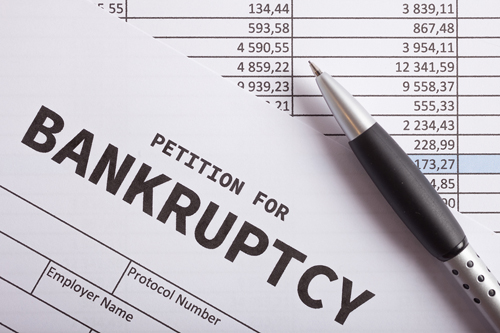What Happens to Student Loans if You File Bankruptcy in Pennsylvania?
If you’ve found yourself unable to pay off student loans or other debts, and have difficulty managing your finances, you may have considered filing for Chapter 13 bankruptcy. If you do, what will happen to your student loans?
Your student loans won’t go away if you file for Chapter 13 bankruptcy. While there are certain exceptions, discharging student loans isn’t easy to achieve. That being said, student loans are considered nonpriority unsecured debts, meaning they won’t be the focus of your Chapter 13 repayment if you have higher priority debts. If you’re having difficulty managing your student loan debt, filing for Chapter 13 bankruptcy can help. It’s important to consult an experienced lawyer if you plan to do this to learn how filing for Chapter 13 bankruptcy can help you manage your student loans.
Our attorneys are here to help individuals with oppressive student loans reclaim their financial stability. For a free case evaluation with the Philadelphia bankruptcy lawyers at Young, Marr, Mallis & Deane, call us today at (215) 701-6519.
Will My Student Loans Go Away if I File for Chapter 13 Bankruptcy?
Financial hardships are a reality for many people. Individuals with substantial student loan debt may feel like no matter how hard they try, they can’t seem to get their heads above water. If your financial difficulties have caused you to file for Chapter 13 bankruptcy, you may believe that your debts will go away. However, that’s not the case.
Chapter 13 bankruptcy is a specific type of bankruptcy. Instead of liquidizing assets to pay off debts, filers configure a repayment plan to help them get out of financial difficulties without losing their assets. In addition, student loan debt is generally considered non-dischargeable, meaning it won’t disappear no matter what kind of bankruptcy you file for. So, no, your student loans won’t automatically go away if you file for Chapter 13 bankruptcy.
That being said, filers that meet specific criteria, like the Brunner Test, may be able to get their student loans discharged in certain situations. For example, if your student loan debt is considered an undue hardship on yourself and your dependents, you may be able to get them dismissed. If you think you may qualify for such exceptions, reach out to your Pennsylvania bankruptcy lawyer. Your attorney can help you figure out your options and see if you pass the Brunner Test.
How Do Chapter 13 Bankruptcies Categorize Student Loan Debt?
Learning how Chapter 13 bankruptcy categorizes student loan debt is important for filers to. This can help illuminate how quickly you’ll need to pay off your student loans and help you understand the repayment process more thoroughly.
Generally speaking, student loans are considered nonpriority unsecured debts. That means that if you have higher priority debts, you’ll focus on repaying those first through your Chapter 13 bankruptcy repayment plan. Priority debts include child support, spousal support, and certain taxes, among other things. Your Montgomery County bankruptcy lawyer can help you learn the hierarchy of your debts to understand how soon you’ll have to repay your student loans after filing for bankruptcy.
Unlike priority debts, nonpriority unsecured debts, like student loans, don’t have to be repaid in full through your Chapter 13 bankruptcy repayment plan. So, if you have a considerable amount of student loans hanging over your head, it may reassure you to learn that you don’t have to pay them off completely before you can get out of bankruptcy.
How Can Filing for Chapter 13 Bankruptcy Help Me Manage My Student Loans?
As many college graduates know, student loans seem to grow exponentially with each passing year, making paying them off difficult. It may surprise you to learn that filing for Chapter 13 bankruptcy can actually help you manage your student loans in more ways than one. Filing for Chapter 13 bankruptcy can make you eligible for an automatic stay on certain debts, allowing you to delay student loan payments for longer. Filers can also choose to include their student loan debts in a repayment plan, allowing them to chip away at debt at a rate that reflects their financial ability.
Automatic Stays
When your Chapter 13 bankruptcy lawyer figures out a repayment plan that works best for you, an automatic stay will go into effect. This stay prevents creditors from harassing you to make payments. If you have more prominent, higher-priority debts than student loans, you may be wondering how long you can defer your student loan payments. Generally speaking, Chapter 13 filers can defer payments for the entire time they are in bankruptcy. Typically, Chapter 13 bankruptcies can last from three to five years.
An automatic stay after filing for Chapter 13 bankruptcy can help you defer payments for longer without being constantly bothered by student loan creditors. You can get a handle on your other debts before you address ones relating to student loans.
Repayment Plans
Chapter 13 repayment plans can actually help filers repay student loans. If your only debts relate to student loans you took out in your youth, you can focus on repaying those back in a structured way that’s proportional to your income. So, your monthly student loan payments can reduce, allowing you to get on your feet and better afford payments once you get out of bankruptcy. Repayment plans can also help alleviate the impact that interest rates have on your ability to pay off student loan debt.
If your student loan debt becomes overwhelming and affects your quality of life, speak to an Allentown bankruptcy lawyer. Your attorney can help you file for bankruptcy to reclaim your financial security and manage your student loans.
Call Our Lawyers to File for Chapter 13 Bankruptcy Today
If you need help managing your student loan debt, consider filing for Chapter 13 bankruptcy. For a free case evaluation with the West Chester bankruptcy lawyers at Young, Marr, Mallis & Deane, call us today at (215) 701-6519.






























